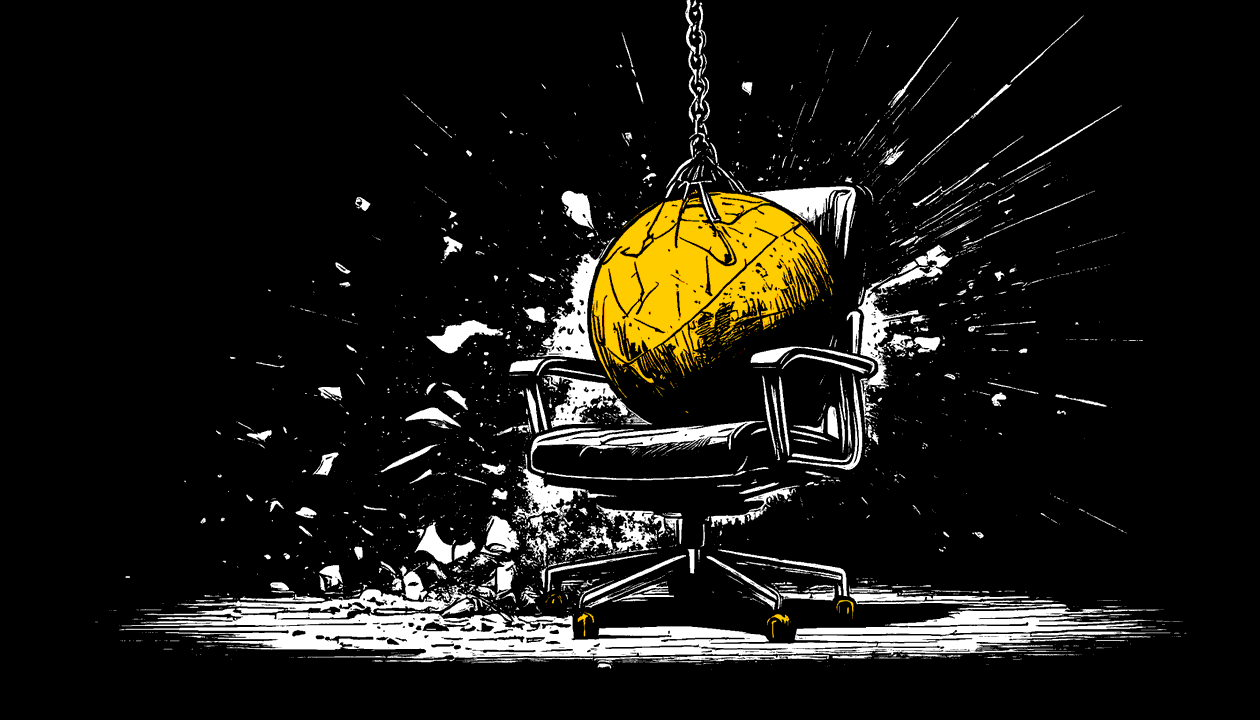Mature Business with Startup Mentality
The Myth of the Startup vs. the Reality of Staying Hungry

Startups are chaos. You run on blind optimism, caffeine, and delusions of grandeur. But that chaos works—because it forces the choice between innovation or death. Then, one day, you wake up with a real business. It’s making money. You’re not panicking every second, instead your panicking is only every other second. You’re comfortable, you think… And that’s when you start dying.
The lie we’re sold: “Startups innovate, mature businesses just optimize.” Bullshit. The moment you think you’re just optimizing, you’ve already started your funeral procession. Look at Blockbuster. Yahoo. Sears. These companies weren’t killed by innovation — they ignored it because they were comfortable. You want to survive? Stay hungry, even when you’ve got a full plate.
Process vs. Agility
Here’s where established businesses get it twisted: they either have no process (so everything is a dumpster fire) or they have so much process that it crushes innovation under its own weight.
You need to build intentional structure—one that allows change, not prevents it. Process should support efficiency, to avoid a bureaucratic disaster.
Take a cue from startups:
- Make decisions fast: Stop scheduling meetings to decide if you should have a meeting.
- Iterate relentlessly: Small, fast changes > Huge, slow overhauls.
- Create pathways for new ideas: If your employees have to fight 14 layers of management to try something new, you’re already dead.
Always Be a Little Unstable
Comfort is a slow death. Ask yourself: when was the last time you felt genuinely uncomfortable in your business? If you can’t remember, you’re stagnating.
Growth comes from tension. It’s why startups move fast—because they have to. But if you’re a mature business, you need to force that discomfort:
- Give yourself deadlines that actually hurt if you miss them.
- Hire people who challenge you, not just reinforce what already works.
- Regularly tear apart your own processes and see if they still make sense. If you haven’t changed how you do things in the last five years, what the fuck are you doing?
The difference between a mature business and a startup? Startups take reckless risks. Smart businesses take calculated ones.
Risk isn’t your enemy — stupid risk is. The key is making bets with a real upside and a manageable downside. Ask yourself:
- If this fails, can we recover?
- If it works, does it significantly change our trajectory?
- Can we test this without betting the whole farm?
The real reason businesses stop innovating isn’t because they’re responsible — it’s because they’re scared. But fear isn’t an excuse to stand still.
“Move fast and break things” is cute when you’re running on VC money, but sustainable businesses need a balance between speed and sanity.
Fast decisions don’t mean thoughtless decisions. Smart companies build cultures that move quickly without turning their employees into sleep-deprived husks:
- Make experimentation a habit: Test small, test often.
- Kill ideas fast: If it’s not working, drop it. No funerals.
- Give people actual autonomy: If every decision needs executive approval, you’ve already lost.
Legacy Is a Handicap
You know what kills most great businesses? Their own success. They get stuck in the way things have always been done and refuse to kill their sacred cows.
Remember Microsoft in the early 2000s? They were too busy protecting Windows and Office to see the cloud revolution coming. Meanwhile, AWS and Google started eating their lunch. When they finally got their shit together, it was almost too late.
Don’t let your past success keep you from evolving. If your product, service, or strategy hasn’t changed in years, assume you’re already behind. Reinvent yourself before someone else does it for you.
Here’s a paradox: Startups make terrible decisions because they don’t have enough money. Mature businesses make terrible decisions because they do have money.
When you’re broke, you’re forced to be smart, scrappy, and resourceful. When you’re profitable, you start hiring idiots, bloating your processes, and burning cash on things you don’t need.
The solution? Run your business like you’re still broke. Stay lean.
- Question every expense. “Does this actually move the needle?”
- Don’t hire for problems that can be solved with better process.
- Treat every dollar like it’s your last.
The Startup Drug
The high of a startup is a rush — new clients, new problems, the thrill of survival. Personally, I’m an addict. But when you hit stability, that dopamine rush fades, and suddenly, work feels like a chore. That’s the danger zone.
If you’re bored then you’re boring. And boring businesses struggle and die. Here’s how you keep that thrill:
- Set impossible goals and chase them.
- Keep launching new experiments — products, services, marketing strategies.
- Measure innovation, not just revenue.
Stay Hungry or Die
If you’ve been coasting, it’s time to wake the fuck up. Your competitors are hungrier than you. They’re moving faster. They’re taking the risks you’re too scared to take. And if you don’t shake yourself out of your comfortable rut, they’re going to eat your lunch.
So here’s your action plan:
- Make a change this week — even if it’s small.
- Cut something wasteful this month — whether it’s a bloated process or a bad hire.
- Launch something new this quarter — a new service, a new approach, a new experiment.
The businesses that win aren’t just the biggest. They’re the ones that never stop evolving.
Good luck.
